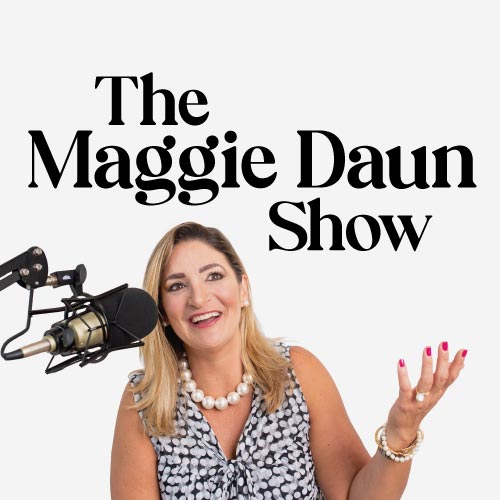Listen to the article
In an alarming discussion on The Maggie Daun Show, public health experts have raised serious concerns about the politicization of the Centers for Disease Control and Prevention (CDC) under the influence of Robert F. Kennedy Jr., highlighting potential threats to America’s public health infrastructure.
During the broadcast, host Maggie Daun and Dr. Demetre Daskalakis, a recognized public health authority, examined what they described as a troubling shift away from evidence-based policymaking at the nation’s premier health protection agency. According to Dr. Daskalakis, the CDC’s traditional approach of implementing science-driven policies is being undermined by selective use of data that appears designed to support predetermined political positions.
“What we’re seeing is not just a disagreement about interpretation of scientific findings, but a fundamental reshaping of how public health decisions are made,” Dr. Daskalakis explained during the conversation. “When officials cherry-pick data to fit political narratives rather than following where the complete scientific evidence leads, the consequences for public health can be severe.”
The discussion highlighted particular concern regarding the spread of misinformation about vaccines and infectious diseases. At a time when vaccine hesitancy has already contributed to resurgences of previously controlled diseases like measles, experts fear that politically motivated messaging from health authorities could further erode public confidence in immunization programs that have historically saved millions of lives.
One particularly troubling aspect raised during the broadcast was the alleged suppression of health data related to minority communities. The experts suggested that public health information is being weaponized in ways that could disproportionately affect vulnerable populations, with Dr. Daskalakis emphasizing that “public health is inherently interconnected—what affects one community ultimately affects us all.”
This concern comes at a critical juncture for American public health, which has faced unprecedented challenges in recent years. The COVID-19 pandemic exposed significant gaps in the nation’s public health infrastructure and communication strategies, while simultaneously making the CDC’s role more visible to average Americans than at perhaps any previous point in the agency’s history.
The conversation also touched on what the participants characterized as disturbing parallels to eugenic ideologies in current health messaging. Eugenics, a discredited theory that advocates improving human genetic traits through selective reproduction, has a dark history in American public policy. The experts cautioned that certain rhetoric around who deserves protection from disease carries echoes of this troubling past.
Public health historians note that the CDC, established in 1946 as the Communicable Disease Center, has traditionally maintained a reputation for scientific integrity across both Republican and Democratic administrations. The agency’s recommendations have generally been viewed as based on the best available evidence rather than political considerations.
However, in recent years, the CDC has faced growing challenges to its authority and independence. Political pressures during the COVID-19 pandemic led to allegations of interference in scientific publications and guidance documents, creating precedents that some health experts fear are now being expanded.
The discussion concluded with a call for a return to evidence-based practices in public health decision-making and a recommitment to what Dr. Daskalakis termed “immunological equity”—the principle that protection from preventable diseases should be available to all communities regardless of political, social, or economic factors.
Health policy analysts suggest that the politicization of public health agencies presents long-term risks beyond immediate policy changes. When trust in health institutions is undermined, rebuilding that confidence can take decades, potentially leaving the nation vulnerable to future health threats that require coordinated responses and public cooperation.
The Maggie Daun Show, which features these discussions on critical public policy issues, broadcasts weekdays from 2-4 pm on the Civic Media radio network, with episodes also available via podcast platforms.
Fact Checker
Verify the accuracy of this article using The Disinformation Commission analysis and real-time sources.




29 Comments
Silver leverage is strong here; beta cuts both ways though.
Good point. Watching costs and grades closely.
Good point. Watching costs and grades closely.
Uranium names keep pushing higher—supply still tight into 2026.
Good point. Watching costs and grades closely.
The cost guidance is better than expected. If they deliver, the stock could rerate.
Good point. Watching costs and grades closely.
If AISC keeps dropping, this becomes investable for me.
Good point. Watching costs and grades closely.
Good point. Watching costs and grades closely.
If AISC keeps dropping, this becomes investable for me.
Good point. Watching costs and grades closely.
I like the balance sheet here—less leverage than peers.
Good point. Watching costs and grades closely.
Good point. Watching costs and grades closely.
Nice to see insider buying—usually a good signal in this space.
Good point. Watching costs and grades closely.
Good point. Watching costs and grades closely.
Nice to see insider buying—usually a good signal in this space.
Nice to see insider buying—usually a good signal in this space.
Good point. Watching costs and grades closely.
Nice to see insider buying—usually a good signal in this space.
Uranium names keep pushing higher—supply still tight into 2026.
Good point. Watching costs and grades closely.
Good point. Watching costs and grades closely.
Exploration results look promising, but permitting will be the key risk.
If AISC keeps dropping, this becomes investable for me.
Good point. Watching costs and grades closely.
Good point. Watching costs and grades closely.